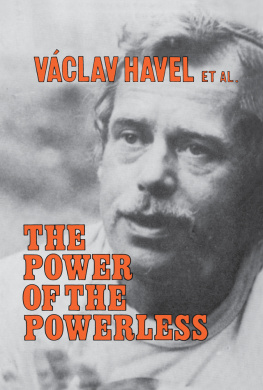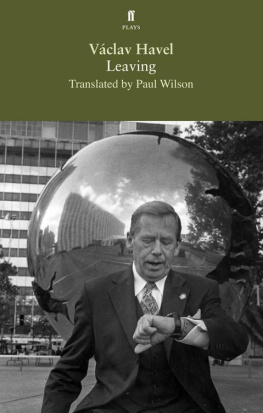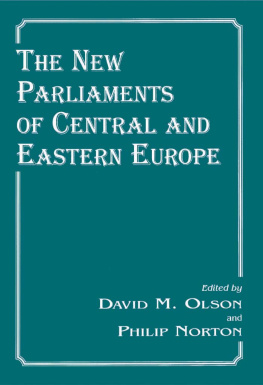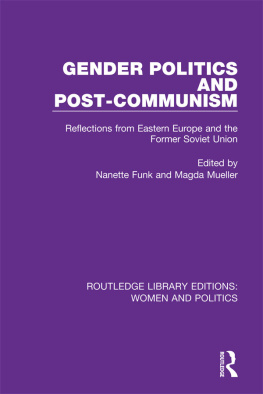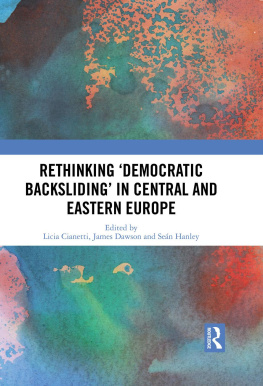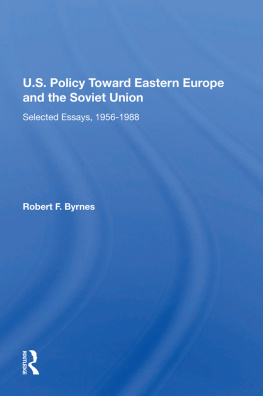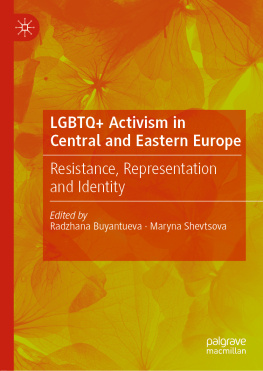First published 1985
by M.E. Sharpe
Published 2015
by Routledge
2 Park Square, Milton Park, Abingdon, Oxon OX14 4RN
711 Third Avenue, New York, NY 10017, USA
Routledge is an imprint of the Taylor & Francis Group, an informa business
Copyright 1985 Taylor & Francis. All rights reserved.
No part of this book may be reprinted or reproduced or utilised in any form or by any electronic, mechanical, or other means, now known or hereafter invented, including photocopying and recording, or in any information storage or retrieval system, without permission in writing from the publishers.
Notices
No responsibility is assumed by the publisher for any injury and/or damage to persons or property as a matter of products liability, negligence or otherwise, or from any use of operation of any methods, products, instructions or ideas contained in the material herein.
Practitioners and researchers must always rely on their own experience and knowledge in evaluating and using any information, methods, compounds, or experiments described herein. In using such information or methods they should be mindful of their own safety and the safety of others, including parties for whom they have a professional responsibility.
Product or corporate names may be trademarks or registered trademarks, and are used only for identification and explanation without intent to infringe.
Library of Congress Cataloging-in-Publication Data
Main entry title:
The Power of the powerless.
Published simultaneously as vol. XV, no. 3-4, of International
journal of politicsT.p. verso.
Contents: The Power of the powerless / Vclav Havel Spiritual
values, independent initiatives, and politics / Rudolf Battk Catholicism
and politics / Vclav Benda [etc.]
1. Europe, EasternPolitics and government1945- Addresses,
essays, lectures. 2. Civil rightsEurope, EasternAddresses, essays,
lectures. I. Havel, Vclav. II. Keane, John, 1949
DJK50.P68 1985 323.4'0947 85-24978
ISBN 0-87332-370-X (cloth) ISBN 0-87332-761-6 (paper)
ISBN 13: 9780873327619 (pbk)
John Keane
Books of great political insight and novelty always outlive their time of birth, and this one is no exception. Written shortly after the formation of Charter 77 and just prior to the birth of Soiidarno, it is among the most original and compelling pieces of political writing to have emerged from central and eastern Europe during the whole of the post-war period. It is centrally concerned with explaining the anti-democratic features, as well as the limits, of Soviet-type 'totalitarian' systems of power. For some time now, it is true, the concept of totalitarianism has been in relative disfavour in the West, certainly when compared with the years of the 1940s and 1950s. That period saw not only the popularization of the term, first as an element in the struggle against fascism and, later, as an anti-communist slogan of the Cold War; it also spawned the 'classic' intellectual writings against the Stalinist and Nazi forms of totalitarian rule, such as Hannah Arendt's The Origins of Totalitarianism , Max Horkheimer and Theodor Adorno's Dialectic of Enlightenment, Arthur Koestler's Darkness at Noon, and George Orwell's Nineteen Eighty-Four .
Since those years, serious analyses of the twentieth-century problem of totalitarianism have been relatively scarce in the West, This can be attributed to various connected factors. These include the virtual monopoly exercised by the conservative Right over the public criticism of Soviet-type totalitarianism, as well as the consequent unease and embarrassment of many on the Left about the disturbing implications of this totalitarianism for the whole ideal of socialism. The validity of 'totalitarianism' as a theoretical concept was also challenged, on the grounds that a perfectly totalitarian regime has nowhere ever been established (a wholly unconvincing objection, considering that every concept we employ to analyse large-scale political phenomena necessarily has no perfect empirical equivalent). Finally, the decline in popularity of the concept of totalitarianism also stemmed in part from the growing awareness that some things have changed in Sovset-type regimes, that the brutal and monstrous delirium of 'classical' totalitarianism has, since the death of Stalin, given way to regimes of power whose systematic repressiveness is less openly brutal and more calculated.
The Power of the Powerless is a welcome reaction against this recent Western silence about the problem of totalitarian forms of power. Writing mostly from a highly original democratic socialist standpoint, its authors draw attention to the depressing novelty of contemporary Soviet-type regimes such as Czechoslovakia. These neo-totalitarian regimes, as they might be called, are, like their Stalinist predecessors, systems of state control of all areas of human life. These systems can only function by extinguishing civil society in its entirety and, thus, by denying any difference between the orders of power, law and publically circulated opinion and information. Consequently, no citizen is innocent before the state; in effect, each citizen is subject to a form of permanent interference. Public opposition of any kind is always regarded by the State authorities as seditious, which is also why 'dissidents' are to be found not only among the intellectuals, but also in every cafe, street queue, factory and church.
Compared with their 'classical' counterparts, the authors of this book suggest, neo-totalitarian regimes nevertheless exhibit some decidedly novel characteristics. Brutal repression and government by fear continue, but in more anonymous, selective and calculated form. Moreover, while the party-dominated state continues its attempts to smother public life by constructing and reproducing a wholly fictitious image of the past, present and future world, almost no one (probably not even senior party apparatchiks) believes any longer in its pantomime of empty, ritualized claims. The utter disregard for efficiency characteristic of the delirium of the Stalin period has also been abandoned. Finally, no longer do these regimes strive to control fully the bodies and souls of their subjects, to embrace everything in depth, to bring everyone together so as to produce a single will, crystallized in the caesarist leader. Contemporary totalitarianism demands precisely the opposite of its populations:: passivity, opportunism, mediocrity, cynicism, an exclusive concern with cultivating such 'private' concerns as career and family life. The regime of 'real socialism' is content with the regulation and control of apparent behaviour; so long as its subjects conform and only disagree silently, they are probably safe.
This is why all attempts to democratically resist the pressure of the neo-totalitarian system have their essential beginnings in the extra-state areas of civil society. Here a different life - a kind of anti-political politics - can be lived, and the self-sustaining aspects of the system, its presence within each individual, can be shaken off. The history of The Power of the Powerless is an exemplary case of this democratic form of civil resistance. This book is the fruit of a 1978 initiative of Czechoslovak and Polish citizens committed to the defence of civil rights. In that year they prepared a joint seminar on the aims, problems and possibilities of their respective democratic movements. The written contributions to the seminar were to be published in a joint Czechoslovak-Polish collection. However, the original venture was jeopardized by the arrest, in May 1979, of ten members of VONS (the Czechoslovak Committee for the Defence of the Unjustly Prosecuted), of whom four are contributors to this somewhat selected and shortened English edition of the original collection. As a consequence of this state interference, the original project had to be hurried forward, and it was decided by the authors to publish the Czechoslovak contributions separately. This original volume, entitled On Freedom and Power, was introduced by an extensive essay by Vclav Havel, who had earlier agreed to write a kind of discussion paper for the seminar participants. This very fine and innovative essay by Havel, reproduced here in full, was subsequently made available to the other contributors, who in turn responded to the many questions raised by Havel about the potential power of the powerless under neo-totaiitarian conditions.

